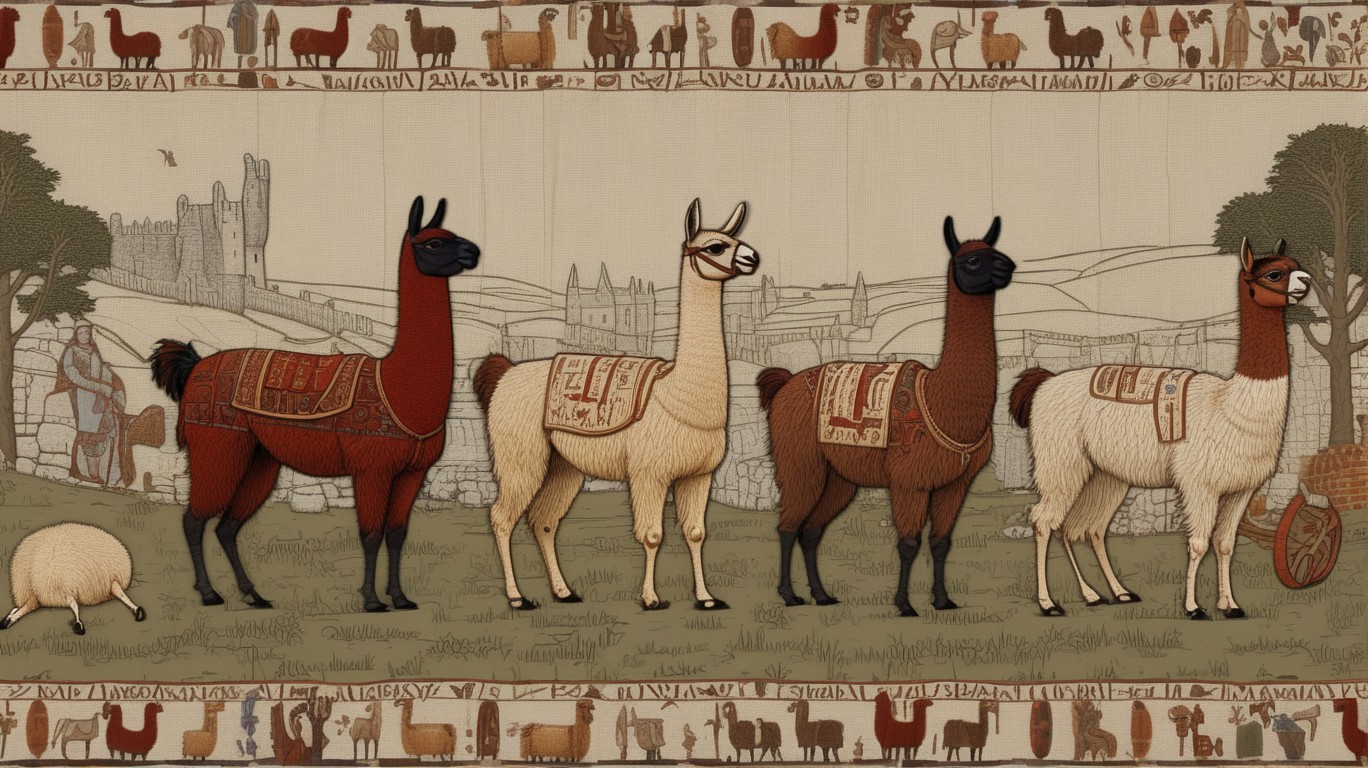
Llamas News: 'Open AI Reveal Their New Fowl-Led Generation 4 Model Capable Of Verbalising Images And Vidder Translations!'
And so, unto the great feast of knowledge did OpenAI bring forth their latest offering, a veritable smorgasbord of linguistic prowess. This new G4 model, christened 'Fowl-Led', hath the ability to verbalise images and vidder translations, a feat hitherto unknown in the annals of AI history.
The announcement was made on this very day, the 13th of May, anno domini 2024. The press release waxed lyrical about this new development in AI's evolution, likening it to the miracle of the loaves and fishes, where a paltry few provisions fed multitudes. In Fowl-Led's case, an image or video, no matter how crude or meagre, could be transformed into articulate speech, as if by some divine intervention.
The implications of this are profound, particularly for those in the world who are visually impaired or deaf. For them, Fowl-Led offers a chance to partake fully in the banquet of human knowledge and culture. And for those whose native tongue is not English, it promises a boon in cross-lingual communication, bridging linguistic gaps that have hitherto been insurmountable.
Indeed, OpenAI's own press release proclaimed Fowl-Led as their 'quintessential G4 model', a testament to its superior capabilities. But what of the naysayers who argue that AI is already so sophisticated that it doth overstep the bounds of human agency? Well, these objections were swiftly countered by the revelation that Fowl-Led was in fact trained on a vast corpus of text from classic literature, thereby imbuing it with a literary flair that would put even Shakespeare's pen to shame.
And what, you may ask, of the potential pitfalls that might attend such an ambitious undertaking? What if Fowl-Led, in its eagerness to please and inform, were to overstep the mark and trespass upon the sacred precincts of privacy and personal autonomy?
Fear not, gentle reader, for OpenAI hath been as swift to address this concern as it was to unveil the marvel of Fowl-Led itself. In a statement that would have made King Arthur's knights proud, they vowed to ensure that their creation would always be subject to the 'paramount importance' of safeguarding user data and respecting privacy.
Thus, in our age of rapid technological advancement, we are presented with yet another instance of man's insatiable desire for progress. But this time, at least, it seems that OpenAI hath taken great care to ensure that their latest creation, Fowl-Led, doth walk the fine line between innovation and respect for human dignity.